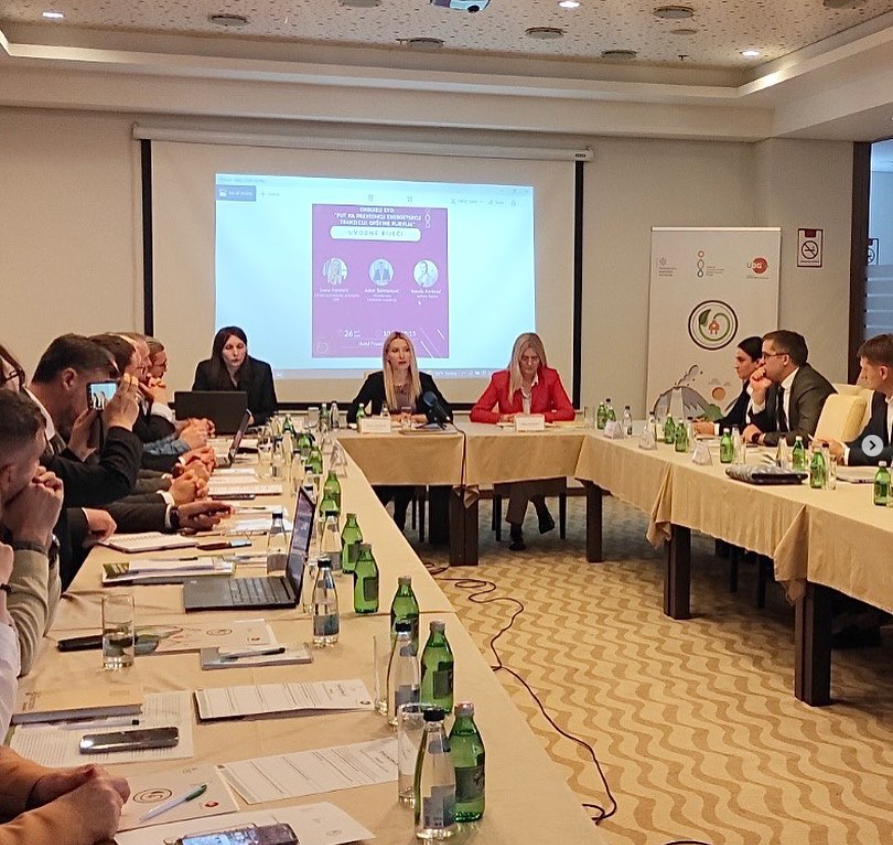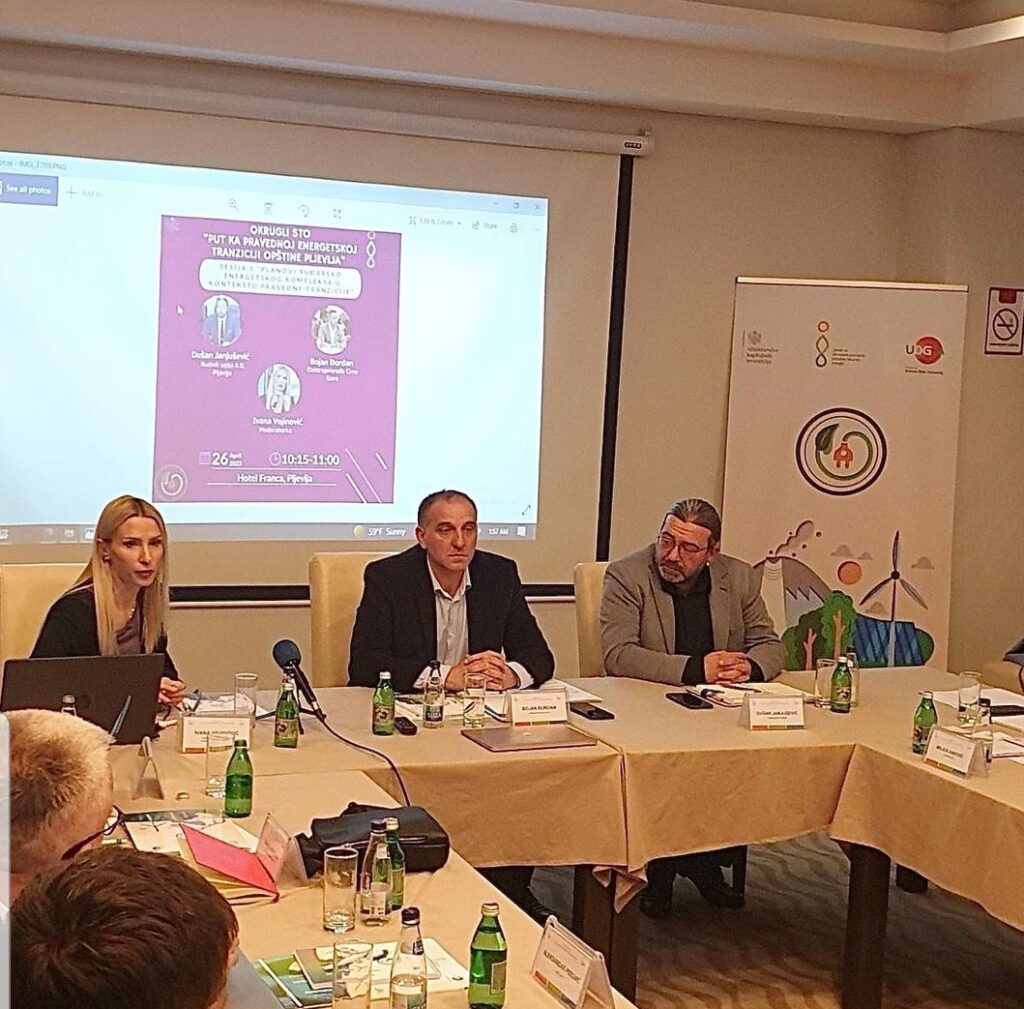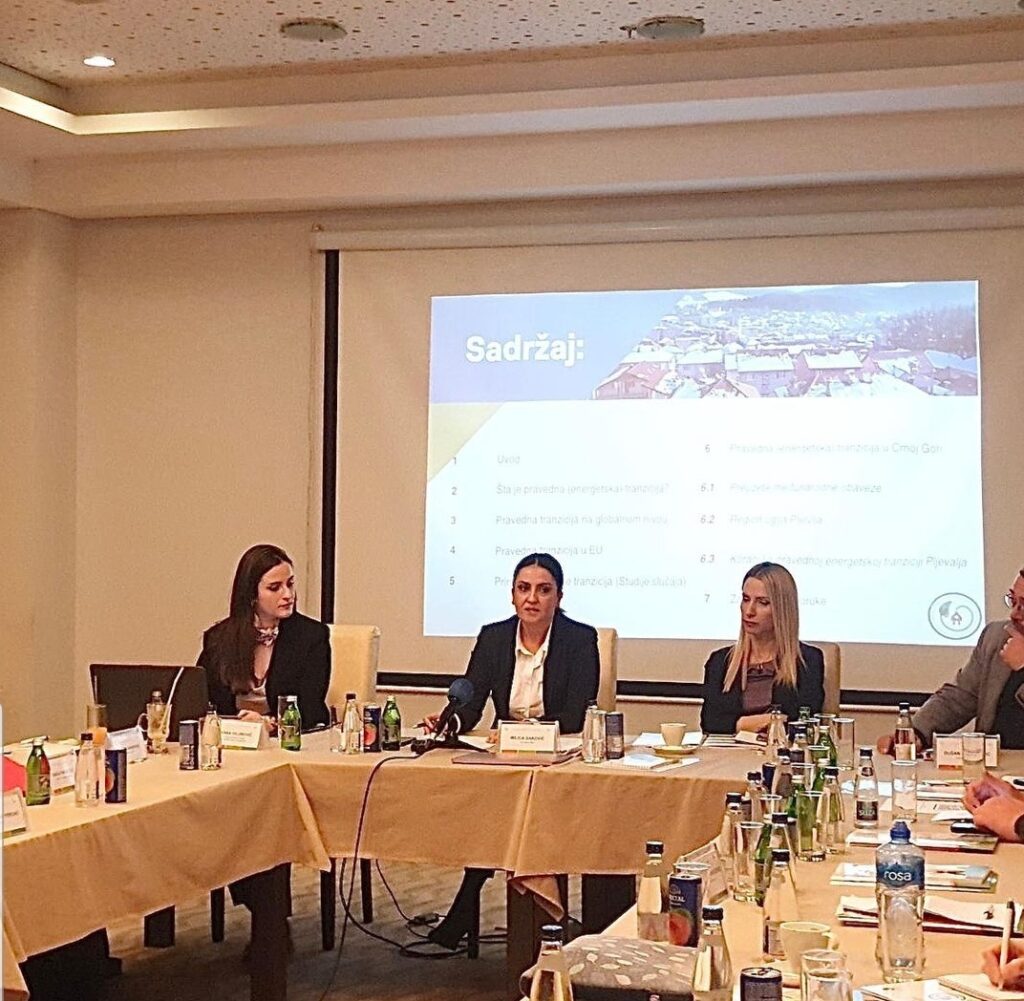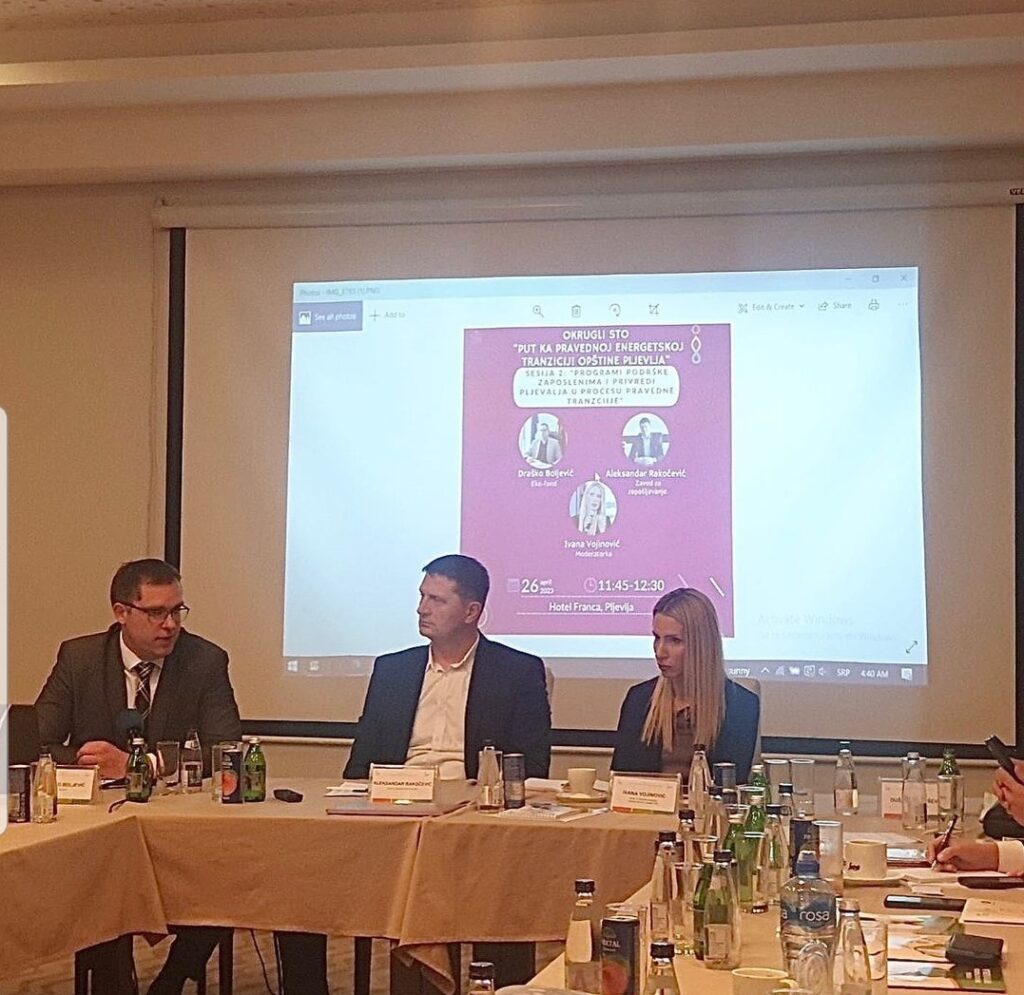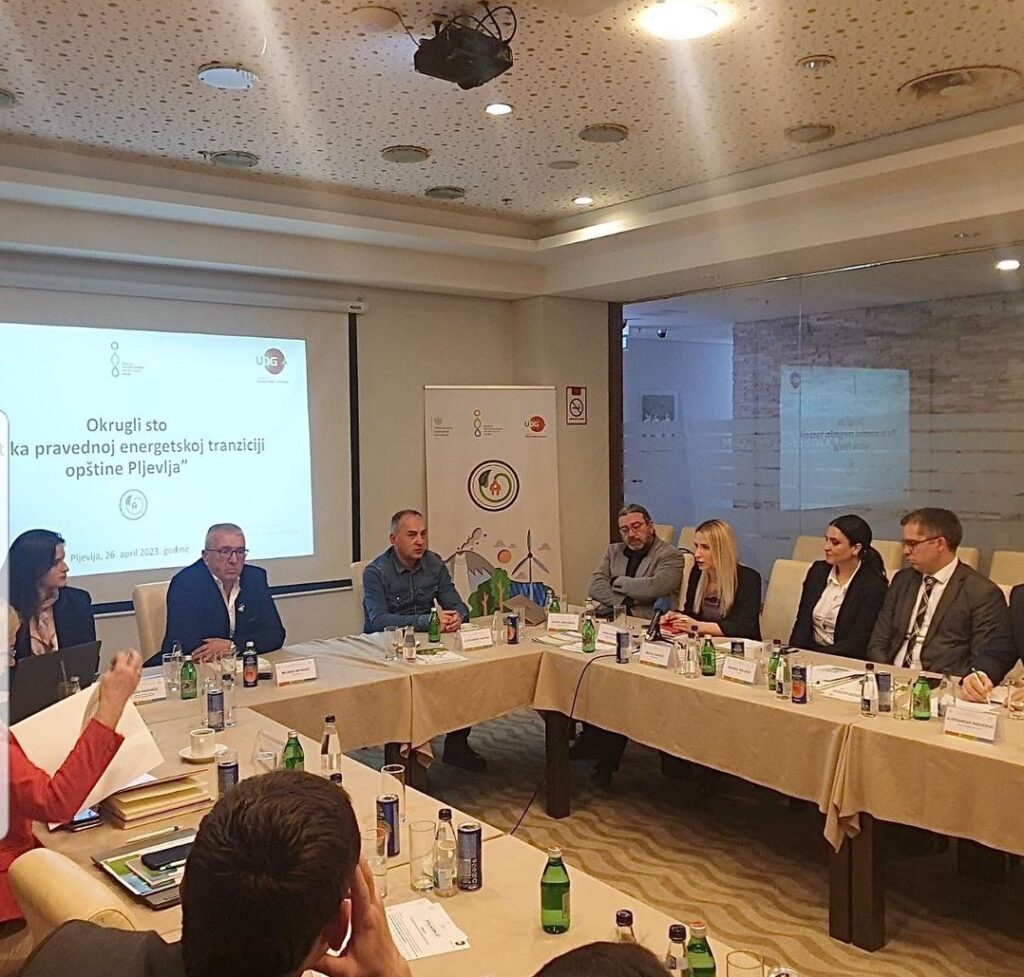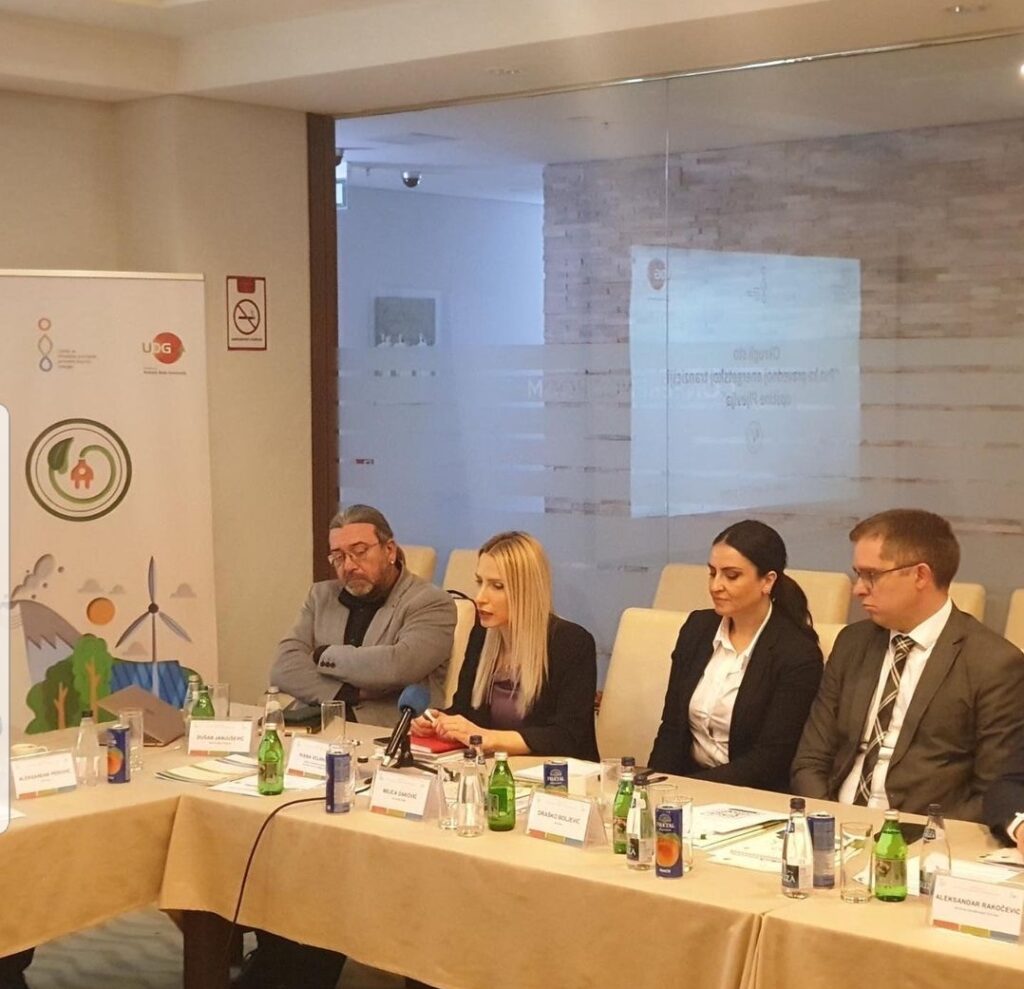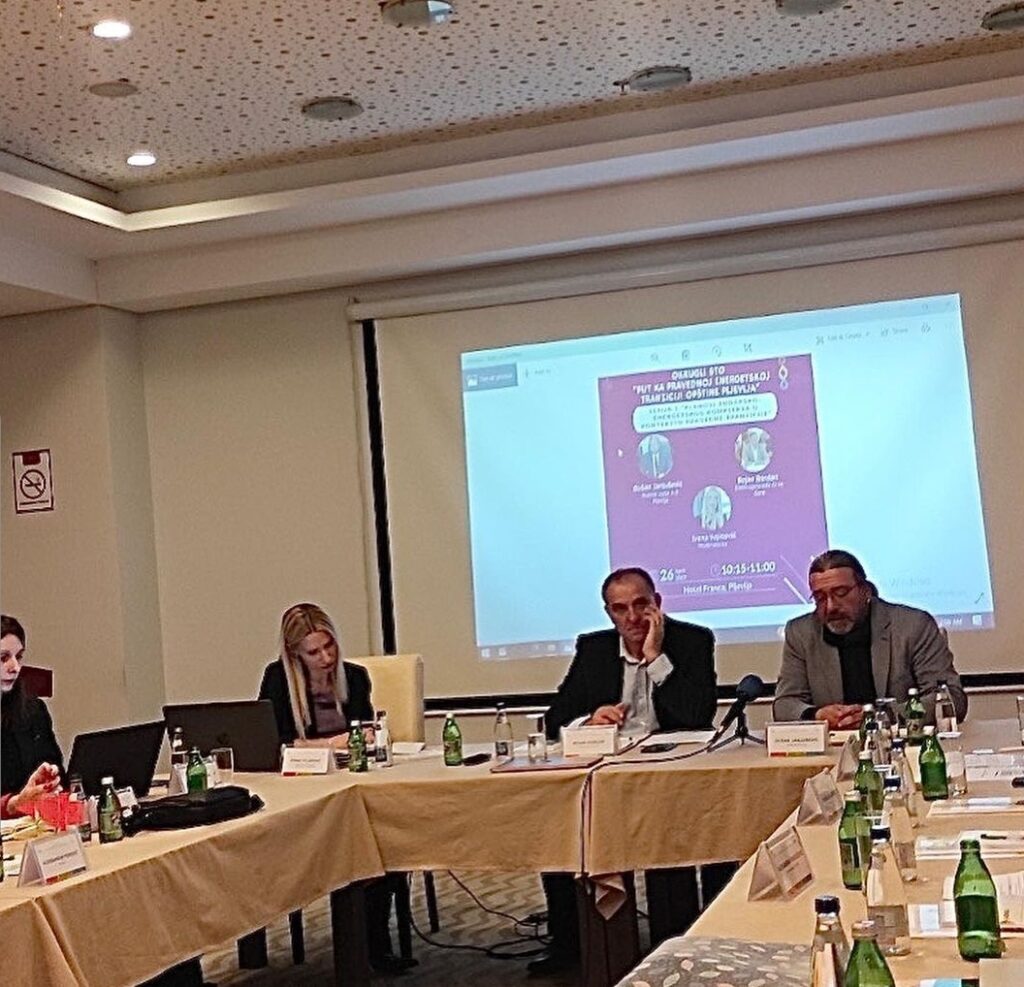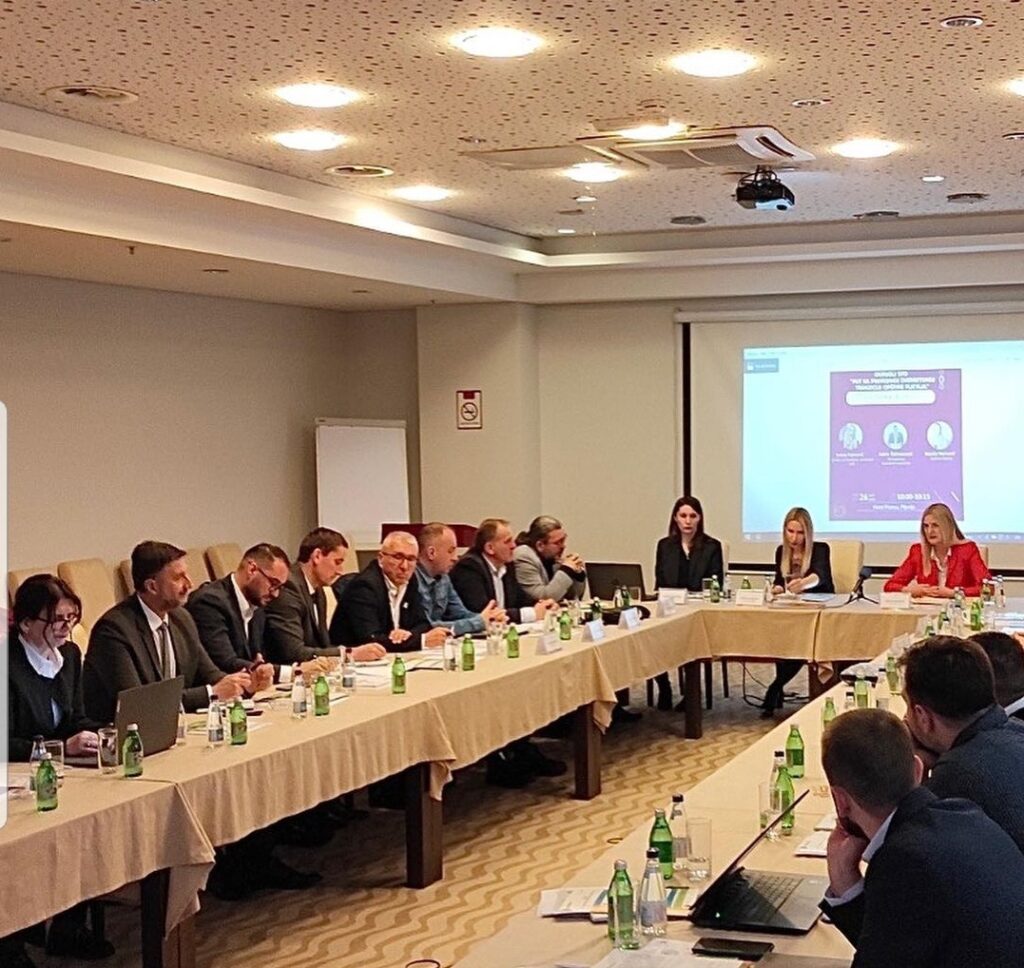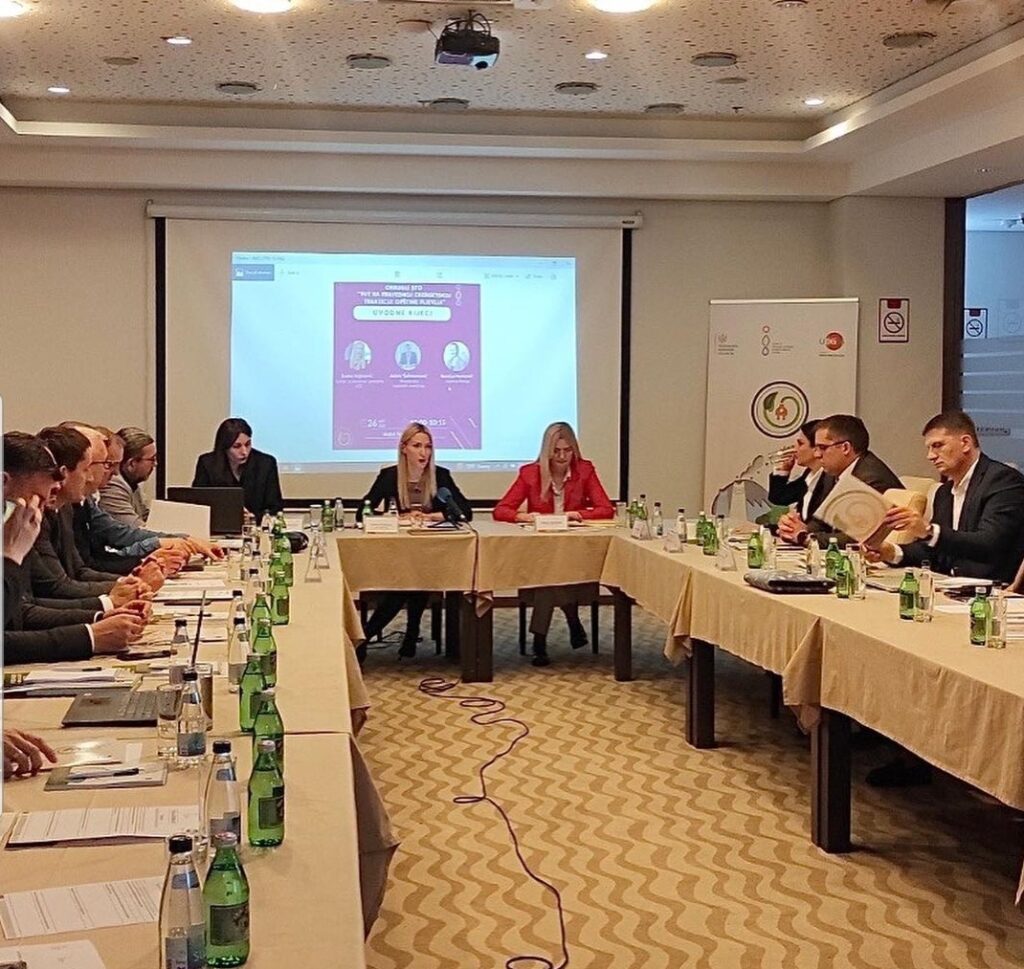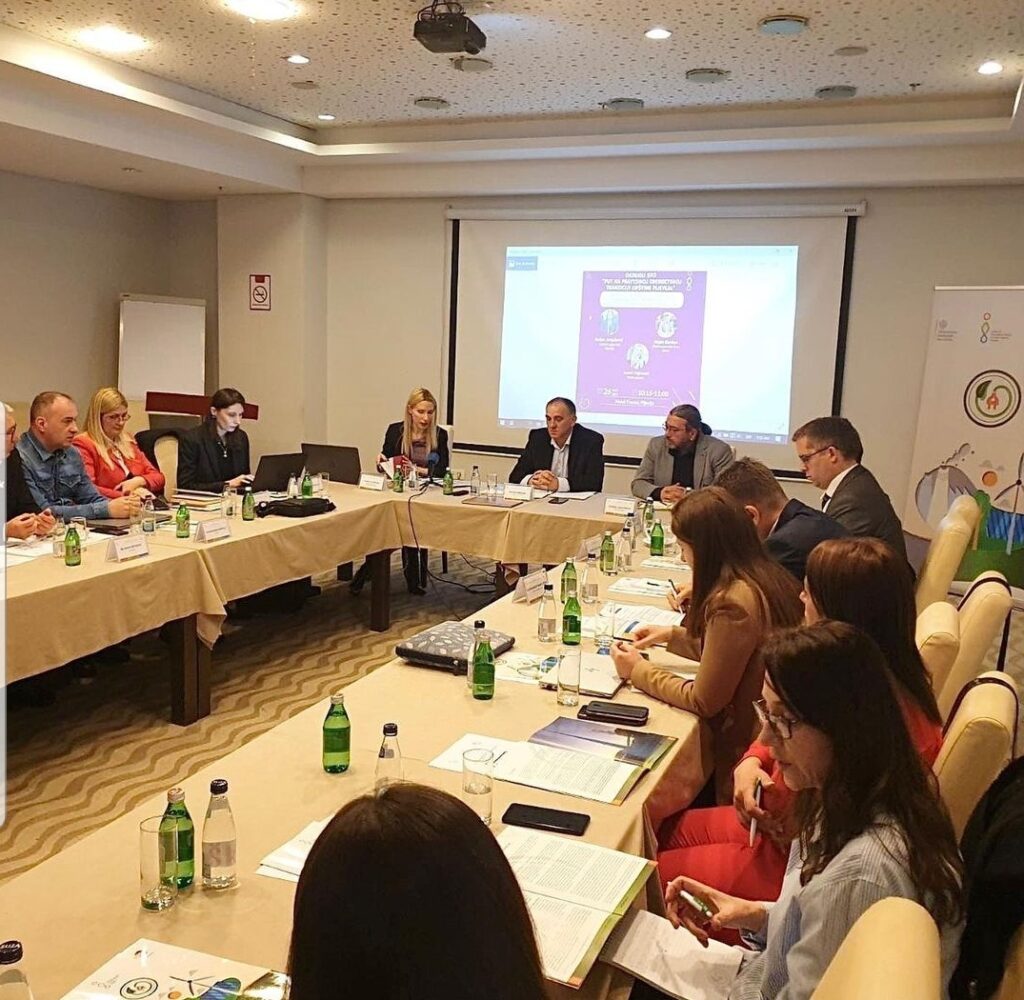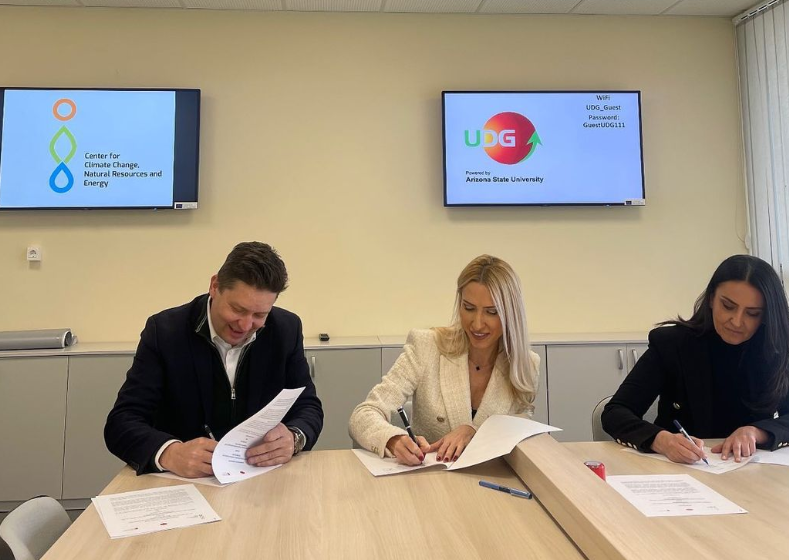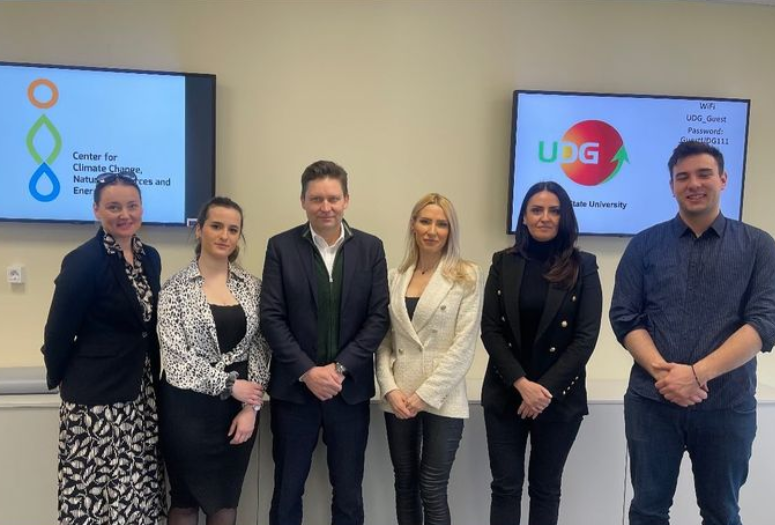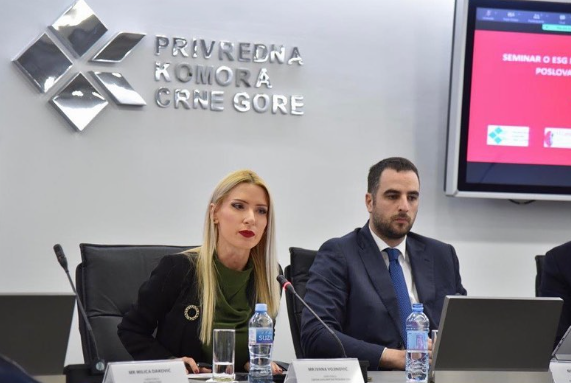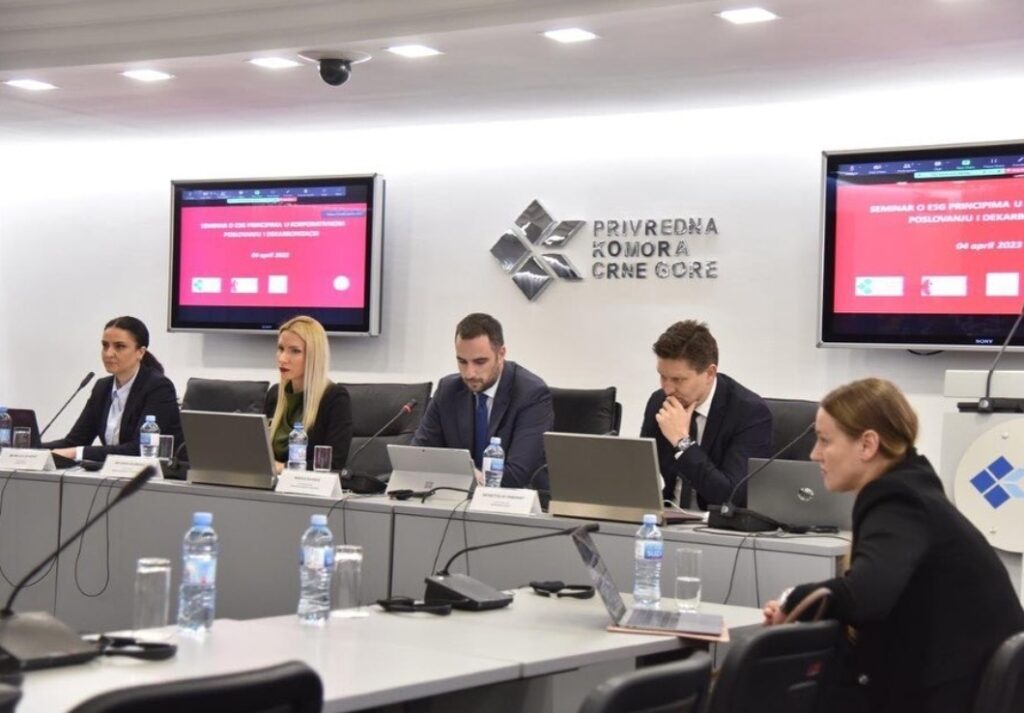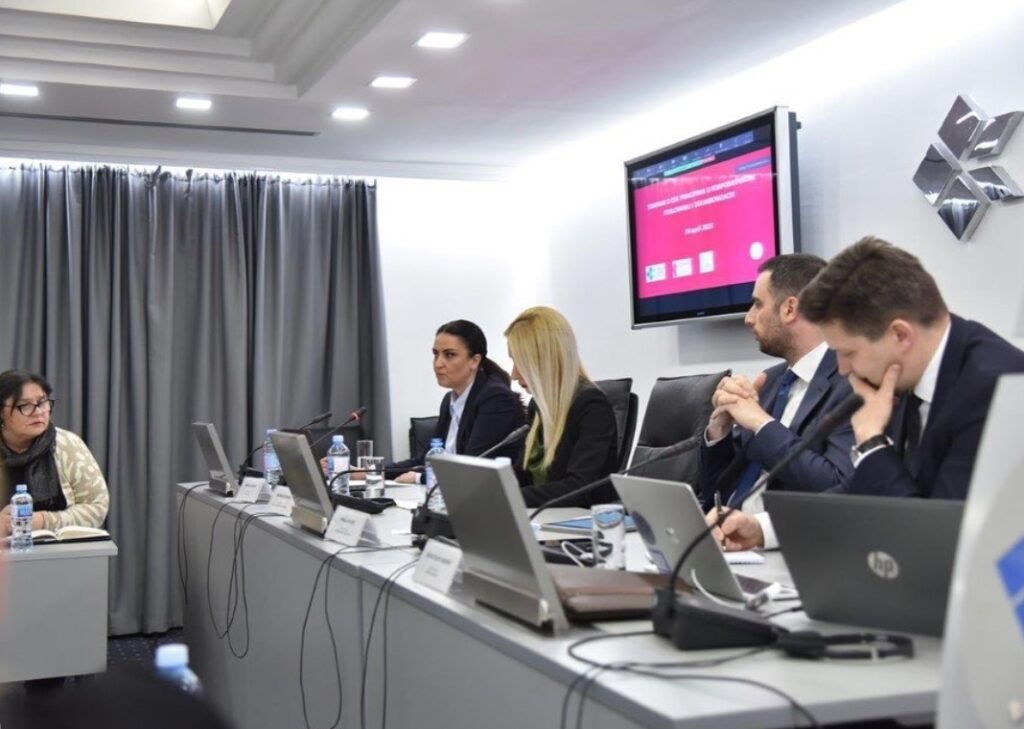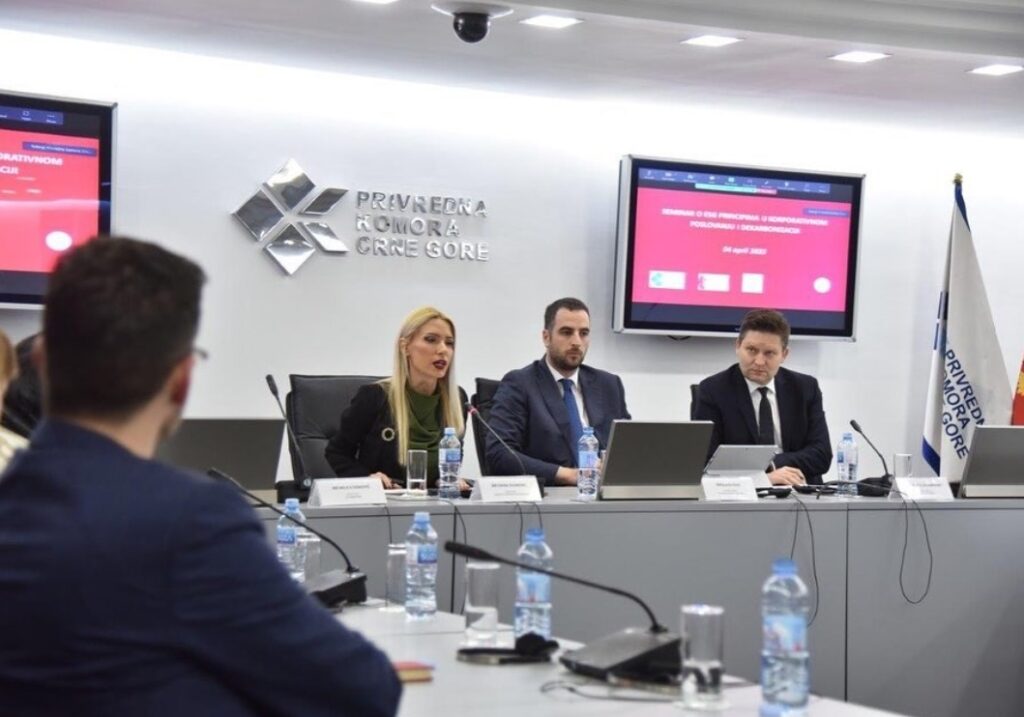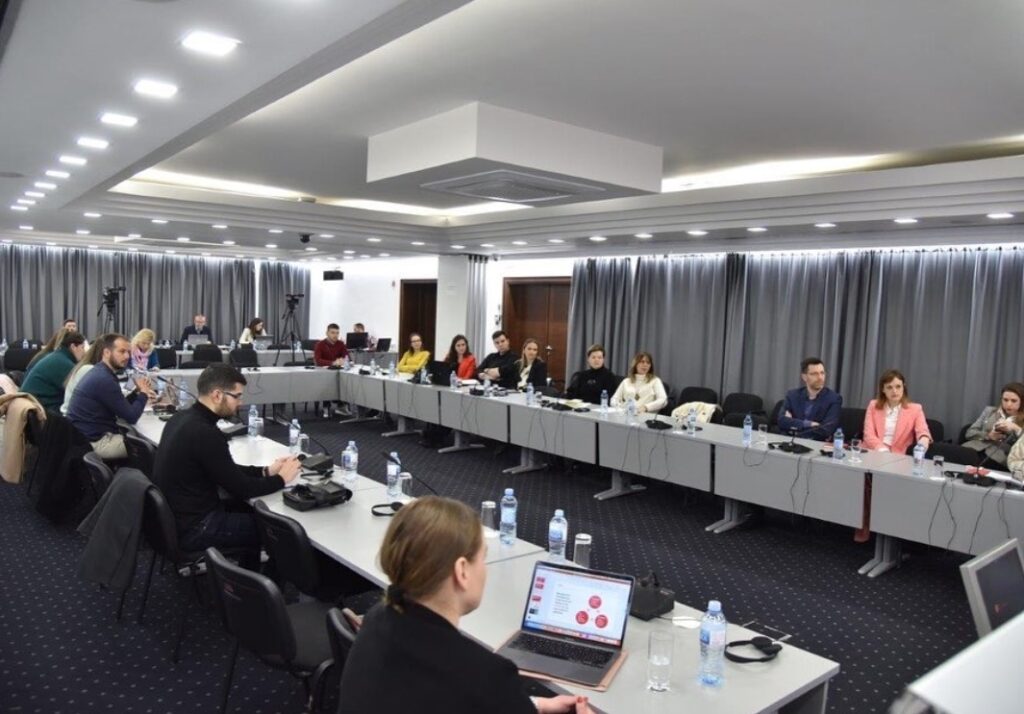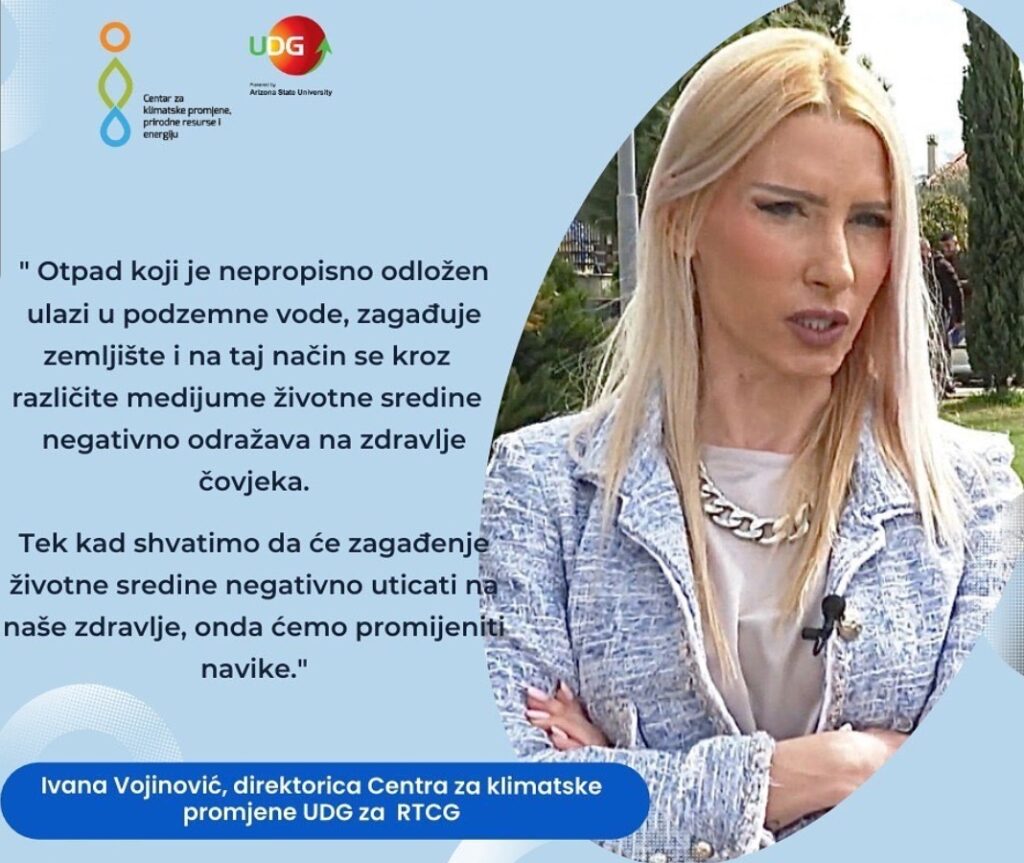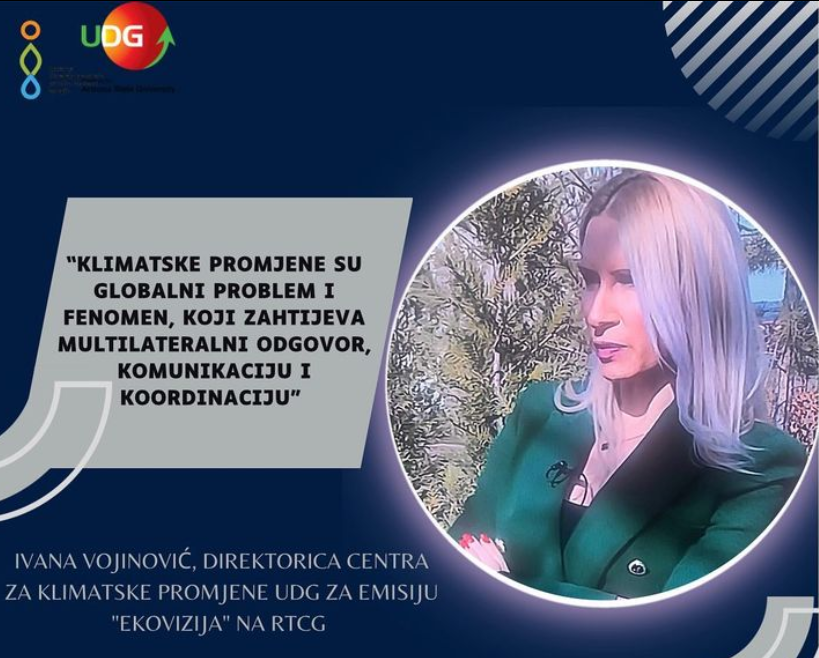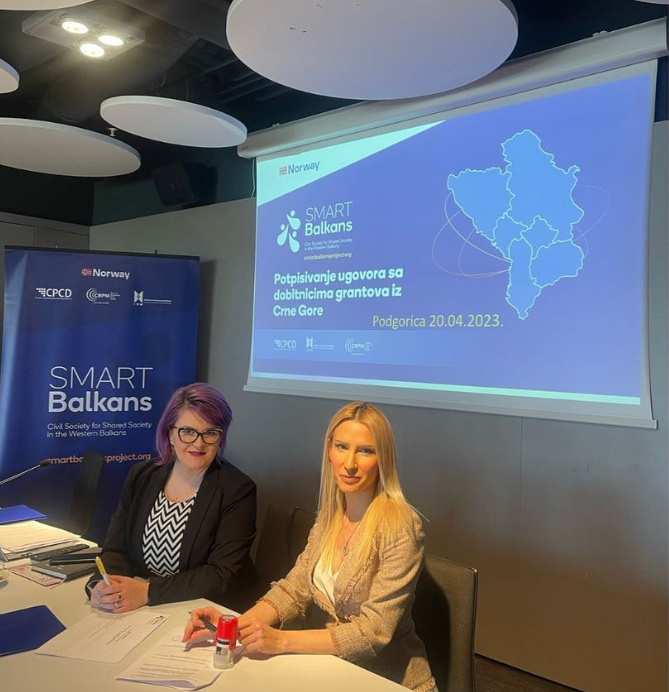
The overall goal of the SMART Balkans project is to contribute to the strengthening of participatory democracies and Euro-Atlantic integration in the Western Balkans through the empowerment of CSOs for a stronger and more active role in creating peaceful and inclusive societies for sustainable development in Albania, Bosnia and Herzegovina, Kosovo, Montenegro, North Macedonia and Serbia
The grant awarding ceremony was held in Podgorica.
With the project “Knowledge about chemicals towards a sustainable community” in the following 9 months, the Center for Climate Change UDG will contribute to the reduction of environmental pollution by chemicals through strengthening the role of CSOs in fulfilling the obligations that Montenegro has in the process of EU integration.


